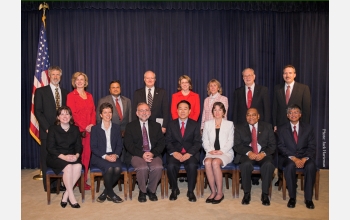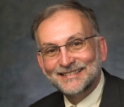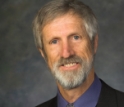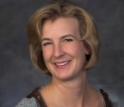|

Press Release 05-199
President Honors Excellence in Mentoring

The 2005 awards cite 10 individuals, one organization for broadening opportunities
November 16, 2005
Today, the White House announced the recipients of the 2005 Presidential Award for Excellence in Science, Mathematics and Engineering Mentoring (PAESMEM)--a program supported and administered by the National Science Foundation (NSF). Each award includes a $10,000 grant for continued mentoring work.
PAESMEM honors individuals and institutions that have enhanced the participation of underrepresented groups--such as women, minorities and people with disabilities--in science, mathematics and engineering education at all levels. Since its inception in 1996, the PAESMEM program has recognized 97 individuals and 68 institutions. Each year's awardees add to the recognition of a widening network of outstanding mentors in the United States, assuring that tomorrow's scientists and engineers will better represent the nation's diverse population. This year, 10 individuals and one institution received the award.
The 2005 individual awardees are drawn from institutions across the country and represent a variety of professional fields. All are highly regarded mentors and have pioneered innovative and resourceful programs to broaden opportunities in science, math and engineering for underrepresented students at all levels.
-NSF-
2005 PAESMEM AWARDEE CITATIONS
INDIVIDUAL AWARDEES
Alonzo Ashley of Stanford University originated and developed the Stanford University Linear Accelerator (SLAC) Summer Research Program for underrepresented minority undergraduates in science, technology, engineering and mathematics - now called the Science Undergraduate Laboratory Internship program. In addition, he was responsible for SLAC's charter membership in the National Consortium for Graduate Degrees for Minorities in Science and Engineering (GEM).
The programs Mr. Ashley pioneered resulted in SLAC's recruitment and retention of at least ten African American Ph.D. physicists, and dozens of minority masters degree-level engineers, computer scientists, mathematicians, and environmental scientists. Mr. Ashley also initiated many partnerships in support of his mentoring objectives, including a collaboration between the National Society of Black Engineers and the San Jose Tech Museum, as well as partnerships between SLAC and numerous Historically Black Colleges and Universities (HBCUs), including Fisk, Savannah State, Paine College, and Southern University.
Sarwan Dhir of Fort Valley State University is Associate Professor of Biotechnology at an HBCU serving a student community that is 93 percent African American. Since 2001, Dr. Dhir has hosted an NSF-funded Research Experience for Undergraduates (REU) in Biotechnology benefiting ten students per year. Dhir's mentoring has emphasized support of independent research, self-confidence and teamwork skills, oral and written communication of research, and career guidance.
Dhir's program brings minority students from the U.S. mainland and Puerto Rico to participate in a summer program at the Center for Biotechnology. Dr. Dhir also mentors numerous high-school students. The pupils collectively have won 198 awards and made 190 presentations. In addition, 238 students of the students mentored have participated in conferences, and 15 have published papers as a senior author or co-author. Two high-school students were finalists in the Siemens Westinghouse competition.
Tanya Furman of Pennsylvania State University-University Park, an associate professor in the department of geosciences, has worked to identify best practices for organizations wishing to develop mentoring programs in science, technology, engineering and mathematics (STEM). She has developed an innovative series of programs that promise a substantial effect on increasing underrepresented students considering STEM-based career opportunities, and has built collaborative relationships at other academic institutions that now use her programs.
Dr. Furman's work has helped to increase minority and female student participation in geosciences. Her mentoring efforts have focused on designing academic research opportunities that are engaging for African-American students, and that encourage students from underrepresented groups to pursue graduate studies.
Joseph A. Gardella, Jr., of the State University of New York at Buffalo, a professor of chemistry and biomaterials, also serves as Associate Dean for External Affairs in the SUNY-Buffalo College of Arts and Sciences. Dr. Gardella has mentored more than 60 undergraduates in traditional junior/senior research experiences, as well as a number of graduate students. In addition, his activities extend to supporting junior faculty and to broadening institutional support for, and engagement in, mentoring. Dr. Gardella's work with graduate students has included his participation in the Sloan Foundation initiative on Professional Science Masters degrees, an effort that fosters collaborations between academia and industry to address workforce needs. He has also worked with the NSF ADVANCE program to improve STEM opportunities for women.
Dr. Gardella also works with programs for Native Americans to improve access to STEM education and careers. He is involved in a partnership with the Seneca Nation to support identification and recruitment of high-school students. His activities with the Buffalo Public School System's Native American Magnet School (K-8) include tutoring, science demonstrations, and STEM curriculum support.
Rosemary Gillespie of the University of California, Berkeley, who is on the faculty of the Department of Environmental Sciences, has studied ways in which Native Pacific Island students can be encouraged to participate in the stewardship of island biology. She continues to build linkages between cutting-edge biology research and the local environment of Pacific-Islander students, presenting her students with opportunities to investigate careers in environmental science and conservation biology.
For Dr. Gillespie, mentoring can be a critical intervention. She has involved her students in hands-on and insightful activities through which they learn about their ecological communities. Because comparatively few projects address the Native Pacific Island population, Dr. Gillespie's efforts focus on tracking students and documenting retention of students.
Jong Pil Lee Distinguished Service Professor of the State University of New York College at Old Westbury, a mathematician, has established a number of local and regional programs at his institution for mentoring students, teachers and faculty in mathematics. He has demonstrated a strong commitment to mentoring individuals personally, particularly K-12 math teachers - an effort that is expected to have a significant impact on the teaching and learning of mathematics in pre-college classrooms in New York..
The scope of Dr. Lee's programs, some of which could potentially become national models, reflects a variety of mentoring methods that have enhanced the academic experiences of hundreds of students and teachers on Long Island and in New York City.
David Pagni of the California State University, Fullerton, a professor of mathematics, has worked with high-school students and current high-school teachers through mathematics engagement, mentoring, and professional development activities. For example, he mentored approximately thirty minority female high-school students each summer from 1993 to 2004 during the Mathematics Intensive Summer Session. Dr. Pagni has emphasized improved mathematics knowledge and skills, as well as attitude enhancement and activities in preparation for college, including information about letters of recommendation and interaction with female role models.
Dr. Pagni also works in teacher professional development through several programs, striving to improve teachers' classroom delivery skills, content knowledge, and understanding of mathematics curriculum for K-12 audiences. Teachers also work on presentation and leadership development skills in order to prepare for roles as instructors of other teachers, curriculum developers, and leaders in professional societies.
Ashok Puri of the University of New Orleans, University Research Professor in the department of physics, works to support the retention and matriculation of minority students at his university, as well as those children identified and served in K-12 outreach activities. Moreover, he supports the recruitment of students through participation in science fairs by visiting classrooms and conducting science demonstrations in public schools. Hurricane Katrina displaced Dr. Puri and his colleagues and students; at present, he continues his UNO work online from a temporary location in Texas.
Dr. Puri is regarded as sincerely and genuinely committed to students and their development. One of the greatest strengths of his mentoring program is the effort to systematically address under-preparation of undergraduate minoritiy students in science, technology, engineering, and mathematics. Dr. Puri has had outstanding success in matriculating minority and female students in STEM disciplines and in encouraging these students to pursue advanced degrees.
Cheryl Schrader of Boise State University, professor and Dean of the College of Engineering, has a distinguished record of mentoring at both her present institution and the University of Texas at San Antonio (UTSA). Dr. Schrader has demonstrated an enduring, strong, and personal commitment to providing students with useful faculty guidance.
At UTSA, Dr. Schrader was the founding faculty mentor for the Society of Women Engineers (SWE), as well as for the engineering honor society. Her campus activities included involvement in a number of other student-support programs, such as the NSF-sponsored Louis Stokes Alliances for Minority Participation, McNair Scholars, and minority scholar programs from NASA and the Office of Naval Research. Since arriving at Boise State, Dr. Schrader has concentrated on mentoring female faculty, developing a partnership with Fort Lewis College (with its large Native American enrollment) to establish a dual-degree program in physics and engineering, and to provide outreach to hundreds of local pre-college girls.
Sheryl Tucker of the University of Missouri, Columbia, an associate professor of chemistry, has had a substantial impact on encouraging female students to pursue STEM-based career opportunities while still maintaining her own active research program. Dr. Tucker has helped establish a hands-on, inquiry-based educational program designed for girls in the fourth through sixth grades in collaboration with the Girl Scouts of America. She has also been active in mentoring undergraduate and graduate chemistry majors as well as female untenured faculty.
Dr. Tucker's mentoring activity has helped to advance knowledge and understanding of the beneficial use of mentoring in STEM disciplines, and through implementing creative and original activities. Dr. Tucker has worked effectively to broaden participation of underrepresented groups in central Missouri across a broad range of age groups--from middle school girls through female STEM faculty.
ORGANIZATION AWARDEE
The University of California, Irvine's Minority Science Program (UCI-MSP), comprises a number of innovative activities that promote academic achievement of students, beginning in middle schools, and that act as pathways to two-year and four-year college possibilities. The program is based, in part, in partnership with four local K-12 school districts, four two-year community colleges, and six universities. The program engages students' interest and has shown significant success. Thanks to the programs, thousands of K-12 students have prepared science fair projects and participated in STEM informational outreach activity. In addition, K-12 STEM teachers have participated in teacher professional development, hundreds of two-year college students have participated in STEM training programs, numerous undergraduate students have received research awards and have authored or co-authored papers in peer-reviewed journals, and many graduate students have participated in the Minority Graduate Research conference.
The merit review panel noted that the program is likely to be sustainable due to the current level of support and confidence these programs receive from the University.

Media Contacts
M. Mitchell Waldrop, NSF (703) 292-7752 mwaldrop@nsf.gov
Program Contacts
David L. Temple, NSF (703) 292-4674 dtemple@nsf.gov
Related Websites
Mentoring Awards Program: http://www.nsf.gov/funding/pgm_summ.jsp?pims_id=5473&org=HRD&from=home

The National Science Foundation (NSF) is an independent federal agency that
supports fundamental research and education across all fields of science and
engineering, with an annual budget of $6.06 billion. NSF funds reach all 50
states through grants to over 1,900 universities and institutions. Each year,
NSF receives about 45,000 competitive requests for funding, and makes over
11,500 new funding awards. NSF also awards over $400 million in
professional and service contracts yearly.
 Get News Updates by Email Get News Updates by Email
Useful NSF Web Sites:
NSF Home Page: http://www.nsf.gov
NSF News: http://www.nsf.gov/news/
For the News Media: http://www.nsf.gov/news/newsroom.jsp
Science and Engineering Statistics: http://www.nsf.gov/statistics/
Awards Searches: http://www.nsf.gov/awardsearch/
| 













